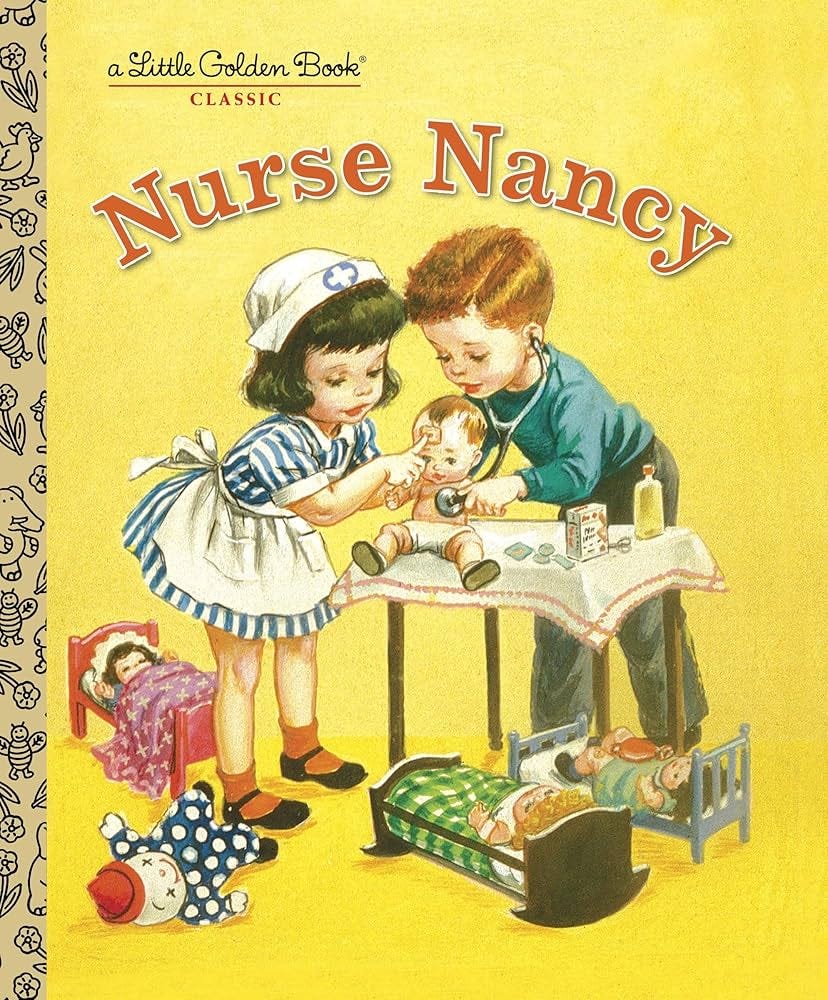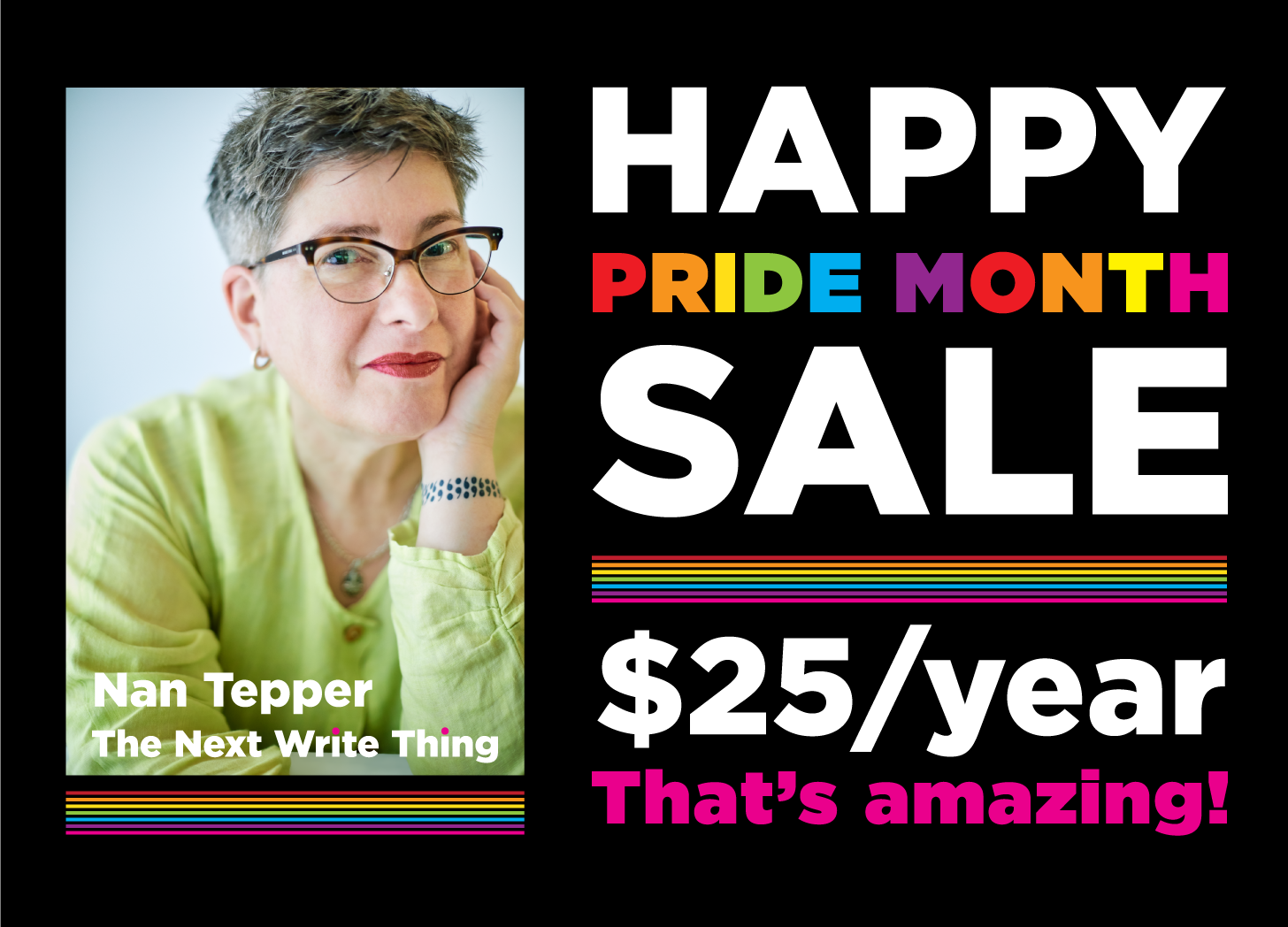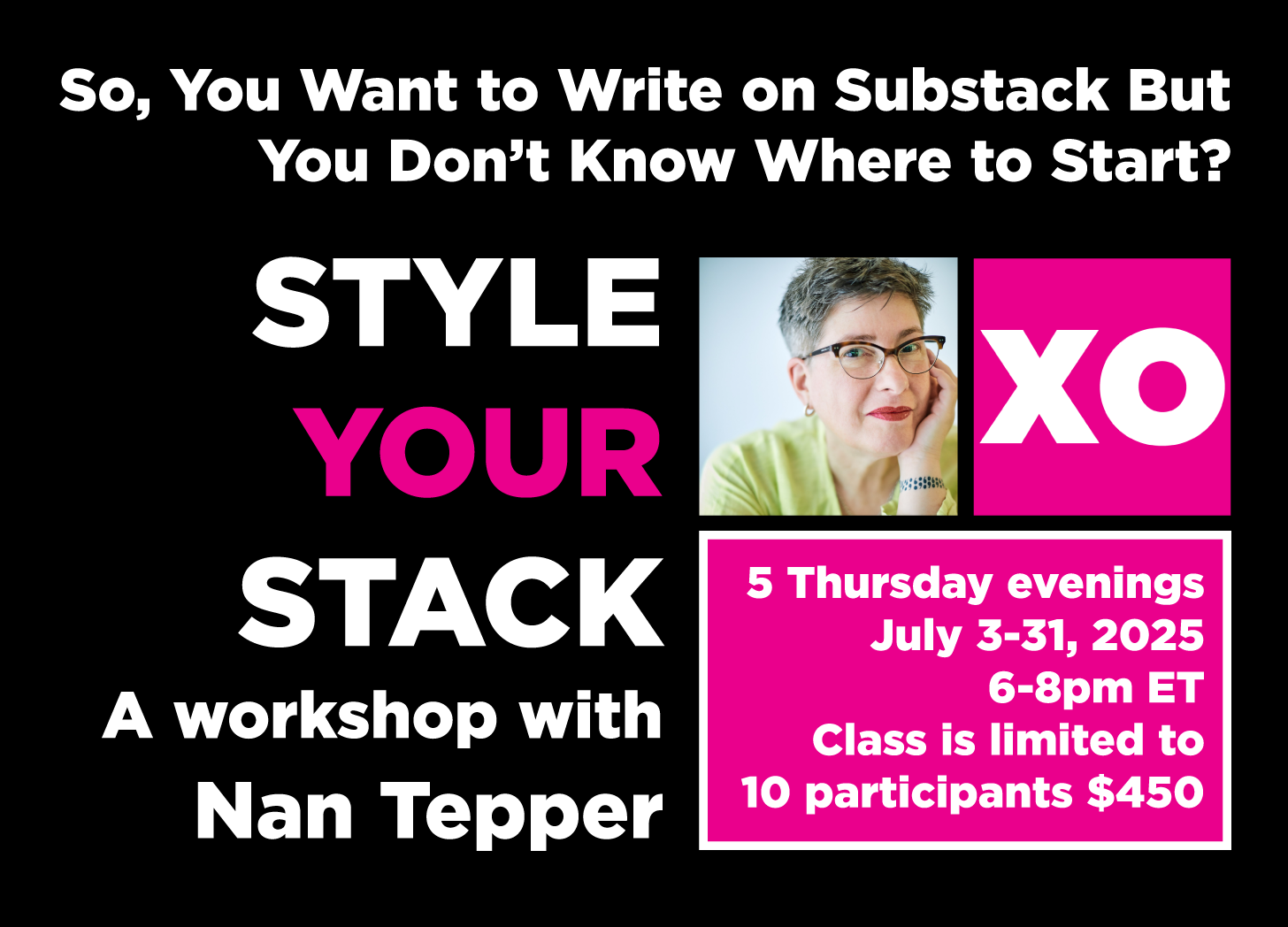No, Please. Allow Me...
How I stopped trying to save everyone else and just take care of myself.
Some of you already know that I’ve had a lot of jobs. 87 or 88 at last count? That’s an awful lot of jobs. While I popped in and out of employment, there was one position that I maintained for most of my life. It was a job that was offered to me when I was young, and I accepted it without understanding the consequences that came with it.
It was a full-time job, and I was always on call. I showed up whenever I was needed, and I was damn good at it. Gifted, in fact. Everything about the job came naturally to me, after I learned the tricks of the trade. I learned my craft as if by osmosis, influenced by the situations that made up my life. I worked that full-time job at the same time as working at my other occupations; the ones that paid me a salary. This job paid in other ways. Sometimes it paid cash or gifts, but mostly it gave me a sense of security and confidence. I would find out that the sense of security was an illusion.
I’m mostly retired from this work, though once in a while I get tempted back into the fray. It’s hard to stop doing something I’ve done my entire life. When those moments arise, and I’ve got my wits about me, I turn down the assignment or just call out sick. I’m grateful for those glimmers of clarity when I’m about to get pulled back in.
When I was in first grade, there was a kid in my class––her name was Nina. She was pretty and wore nice clothes. She had blonde hair and blue eyes. We weren’t friends, but we peacefully co-existed. I was a little wary of her, because she did this weird thing. Every week, she’d come to class with a few dollar bills, and she’d give them to select kids, rotating from one to another, until everyone got paid. One day, I asked her why she was doing it, and she looked at me and smiled, and stated very matter-of-factly that she gave the kids money because she wanted them to like her. Something about that scared me. She offered me a dollar one day, and I took it––it could buy me a lot of candy––but it made me feel uncomfortable and sad. Would I owe her something now? I didn’t want to be friends with her, but I felt like I was expected to, since I accepted the dollar bill.
Looking back, I know it struck a deeper chord than I was conscious of at the time. I may not have been giving out money––that came later––but I too, was doing things to get people to like me, so that I could feel safe. Especially at home.
I was trained for this job by my parents first, who taught me well. As I grew, I took my talents out into the world. I was unaware of the behaviors I used and the things I gave up so that I could fulfill my appointed role.
As a child, I had a book I loved. It was called Nurse Nancy. My parents started calling me Nancy Nurse. I was a helper, like the Nancy character in the book. I liked to help fix things, and when I did, I got attention and love. Nancy Nurse to the rescue! As I moved from more practical tasks––like putting Band-Aids on imaginary boo-boos or taking make-believe temperatures––to more subtle ones––like thinking I could read my father’s mind when he appeared grumpy and then trying to cheer him up––I really began to excel.
I was an all-knowing 5-year-old, groomed for the life ahead of me. I became hyper-vigilant. I was a self-elected hero who’d keep everyone safe. A full-time peacemaker. A problem-solver. In my own mind, I was indispensable. I carried these qualities with me throughout my life, only occasionally dipping my toe in the waters of rebellion, of getting glimpses of the real Nan. The one who wanted to say no. But I was frightened to stand on my own, I was in search of comfort and caretaking, and I did what I could to feel secure and valued.
Could this have been a story I made up in my head? That I had to perform, be extra-special, and accommodating? No. It was an expectation planted in me at such a young age, that I didn’t have the discernment necessary to see and understand the dynamics of the dysfunction I grew up with.
Constantly on the alert for the ripples that might signal trouble on the horizon, I started twisting myself into other selves who weren’t really me. I did it to avoid conflict. I did it to maintain the status quo in my family and the world beyond. I did it so people would like me. I looked for opportunities to help, to show up as whomever the other person needed me to be. A chameleon through and through. On the surface, I seemed sincere. On some level I believed I was sincere. But the truth? I was learning the fine art of codependency.
As I gained a reputation for being that nice person, for being kind and generous, I learned to place other people’s needs before my own. People enjoyed the person they perceived me to be. They saw in me what I wanted them to see. I was agreeable and willing. Malleable. And insecure and lonely. I was afraid to grow up, to get in touch with what was important to me. I lost my ability to say no.
Being nice paid dividends, but the price was high. The cost was losing track of myself. I didn’t know it was okay to have needs and feelings of my own. I had no idea who the real me was. I played this role in friendships, at work, and in my love relationships. I ignored the whispers in my head that said, no, you don’t want to be this way, you don’t have to be this way. But I was too afraid to be myself, too unsure to dig deep and find out who that other person was. Me.
What had started as an innocent behavior, a survival tool of a sort, became a tool of manipulation and control. I’ve only recently come to understand that. I wasn’t a blameless victim; I was a perpetrator, maybe not as a child, I had no control then; but most surely as an adult. I operated in a fog of fear, obligation, and guilt. F.O.G.
I wasn’t a villain. I was a people-pleaser, run amok.
My therapist reminds me that when one is a child, we often adopt behaviors that make us feel safe, less at risk, whether they’re good for us or not. What served me at one point became a deterrent to my growth, my ability to go out into the world and create an honest life that was good for me. I spent so much time trying to fit myself into other people’s little boxes, that I had no idea how to build or inhabit a little box of my own, one that fit me perfectly.
This was my operating system: Who do you want me to be? Place your order at the window, and I’ll fill it in a heartbeat. Will you need napkins and utensils? Ketchup? Salt and pepper? A beverage, perhaps? Whatever you need, I’m here and I’ll provide!
Then I started seeing something deeper was happening. I was becoming a resentful, angry person. But the resentments and anger lurked beneath the surface. My anger was misdirected at innocent bystanders. I walked through life with my dukes up, ready for a fight. Juxtapose that against my shapeshifting into “nice Nan” and life got confusing. How could I be so angry and so terrific at the same time?
I began feeling that I wasn’t getting back what I was putting in. I had expectations that weren’t being filled. I wanted other people to know what I needed, to read my mind, the way I thought I could read my dad’s. Why weren’t these people anticipating my needs, the way I had anticipated theirs?
Instead of expressing anger––because that was forbidden in my family of origin, and I never learned how––I buried it deep. I didn’t know that it was okay to feel angry about things. Instead of expressing my anger, I’d become dangerously depressed, a patten that continued for decades. I had therapists who’d tell me I had to start talking about my feelings, all of them. I had no idea how to do that. I had no idea where my anger resided, the real reasons for it, and I was afraid that if I let it out, I’d implode, and there’d be nothing left of me.
When my dad died, he left me a lovely inheritance. I did one smart thing with the money, and many not-so-smart things. The smart thing was buying myself a home. A little box of my own. The not-so-smart thing was spending the money that remained on other people. Dinners out, large checks made out to friends having financial problems, extravagant gifts for them and myself, sizable donations to charity. I spent the money, unable to embrace the fact that I was aging, and that I might need the security of it one day. The money? It’s gone.
Through my actions, I was manipulating people, wanting to be a savior, wanting them to feel indebted to me, while claiming the opposite was true. “No strings attached,” I’d say, while my lesser self was keeping score, racking up one resentment after another. Carrying grudges as if they were my precious children.
That’s true codependent behavior. I began to understand how many motives I had that I wouldn’t cop to while I was doing my job so well. I didn’t begin to understand the implications until a few years ago, working in therapy and 12-Step to uncover all the ways I’ve sabotaged myself and my relationships while looking for love and acceptance.
I reached a breaking point in a prior romantic relationship. I kept saying yes to things I wanted to say no to. I kept trying to be who my partner wanted me to be. I tried to convince myself that I wanted the same things. But what she wanted wasn’t what I wanted or needed. And I kept telling myself it was me, my fault; I was broken. I slipped into a depression, my body screaming at me by using pain to get my attention, everything hurt, and my gut was a disaster. I was ignoring the wisdom of my body. My body was trying to tell me that all was not well. I blamed myself, instead of braving it and speaking my truth. Until I had to leave, and when I did, my life opened up. This is a pattern I’ve repeated over and over in relationships. I say yes when I really want to say no. The cycle had to end. I couldn’t have seen any of this without my 12-Step program and therapy.
I had to become willing to change.
A few years ago, I found myself underemployed and broke. I couldn’t afford to treat my friends to dinners out or to buy the gifts I used to flood them with. I had to learn that it’s okay for me to just pay my own way, not pick up the check, and stop trying to be a hero, especially since no one ever asked that of me. I gave myself that job.
I discovered that my friends loved me just for me. I didn’t have to perform any tricks, dole any dollars, or bring any gifts. I didn’t have to save the day to be cared for.
Helping is always tempting, I’m the woman who jumps at a chance to help someone out, it’s deeply ingrained, and sincere more than not. Sometimes, I still help. But I don’t jump anymore. I pause. I look closely at myself before that yes can pop out of my mouth. I check to see if there’s a motive underneath the “yes” that’s not clean. It’s got to be no strings attached. For real.
Maybe the key for me is to not have motives. Well, except for one: love.
1. I’m so grateful when readers decide to support my writing by becoming paid subscribers, and for the WHOLE month of June I’m running a Happy Pride month sale. 50% off my regular price for annual subscriptions.
2. If paid subscriptions aren’t your thing, but you still want to express your gratitude for my essays from time to time, a contribution is always appreciated.
3. AND, there’s another thing that you can do that doesn’t cost a thing. On the top or bottom of the story, you can click on the heart and “♥️” my essay, click on the speech bubble (💬) and leave a comment, and/or click on the little spinny arrow thingies (♻️) and restack the post (“restack” means “share” in Substackese). Those three actions will help me reach more readers!
And, in July, I’ll be teaching my Substack 101 Workshop, again. It was a big hit in May! For any of you who are considering dipping your toe in the Substack pond, I can help get you started. For more info on the workshop, click the title below.
So, You Want to Write on Substack But You Don’t Know Where to Start?











So many important truths in this. The pleaser in me sees the pleaser in you. Thank you for sharing your wisdom. Recovering from this is a life-long endeavor.
Wow- this was like looking in the mirror! I love the way you connect past and present. And it was delightful to see the cover of a Little Golden Book! Loved those!